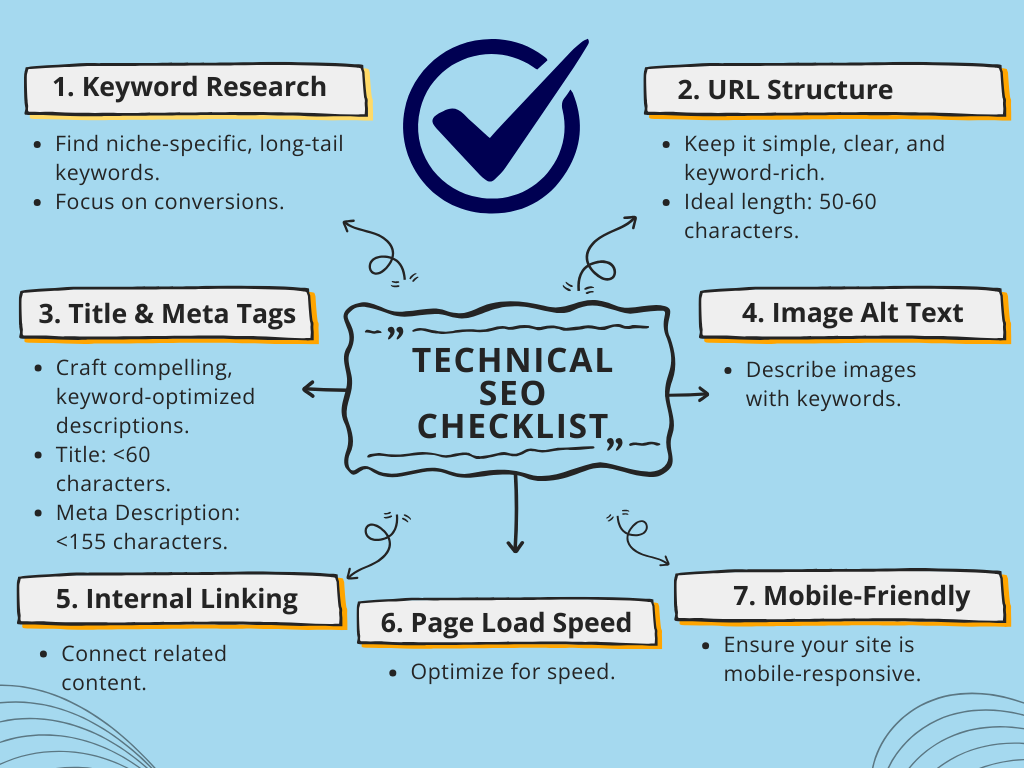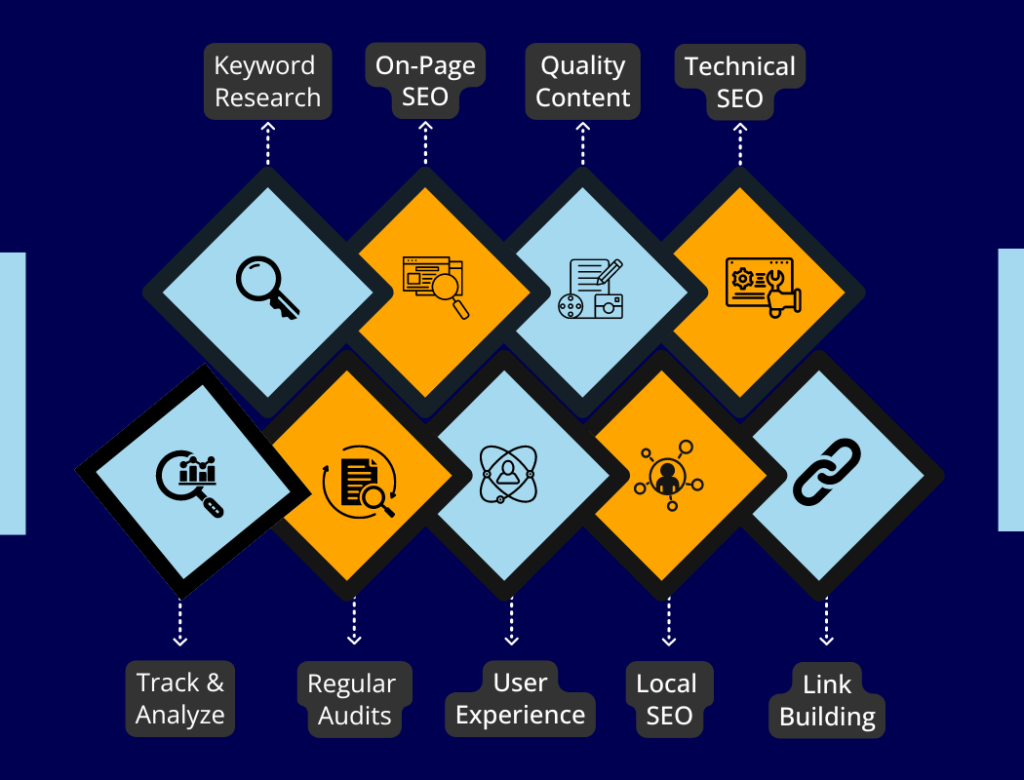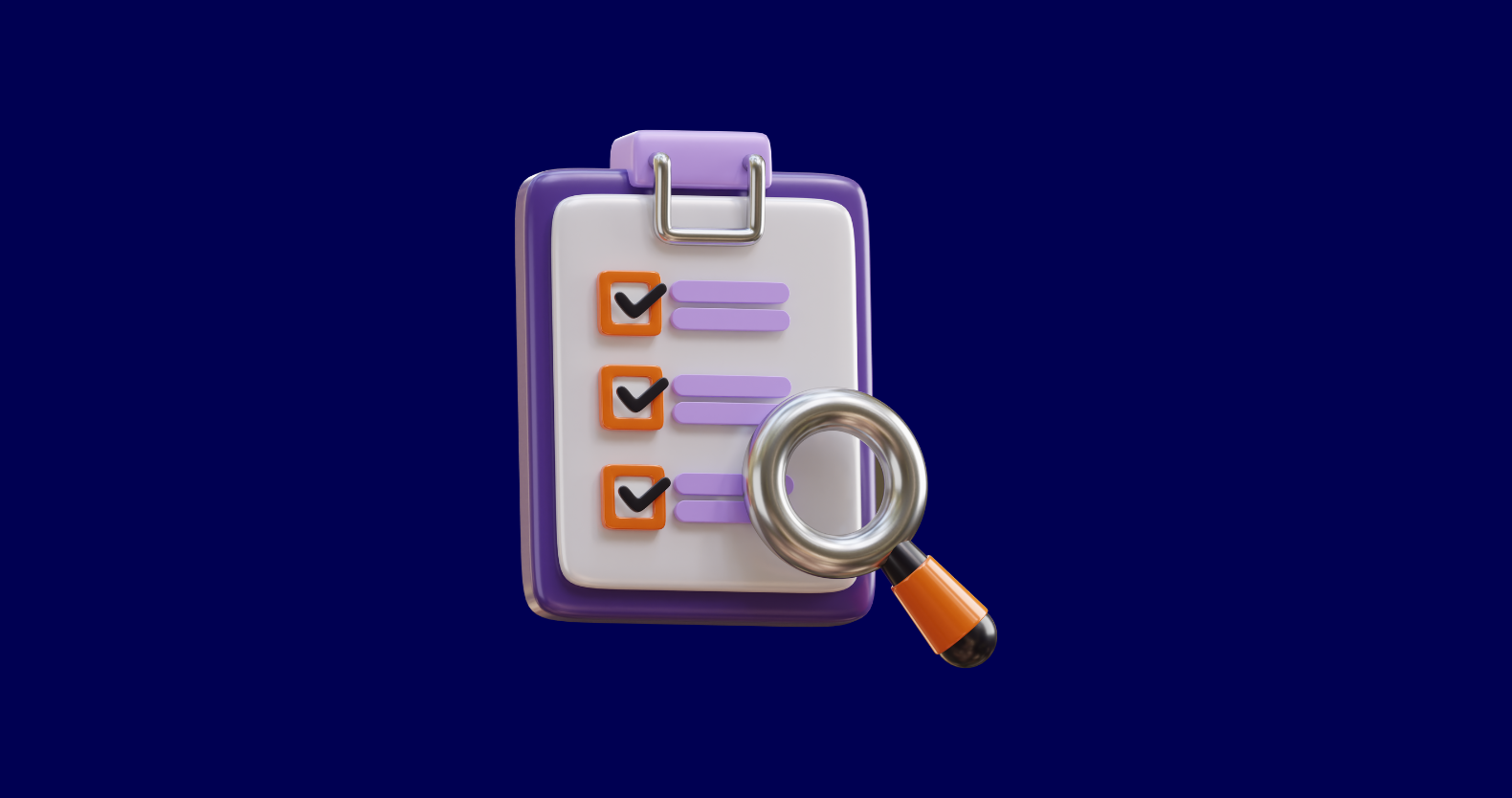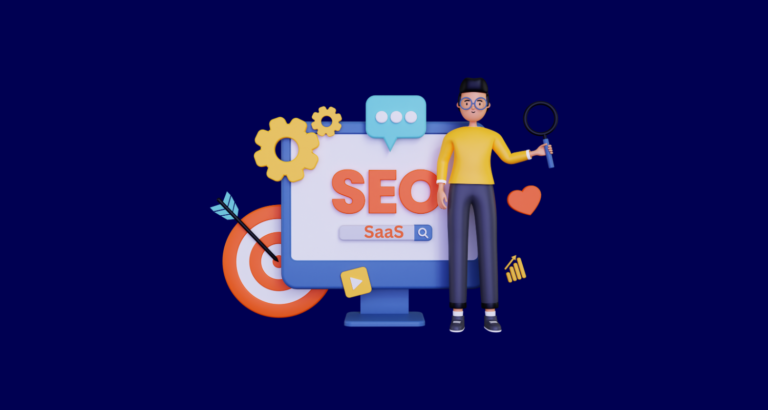The Ultimate SaaS SEO Checklist for 2026: Amplify Your Online Presence
In the digital era, we’re no strangers to the ever-evolving world of Software as a Service (SaaS) and the critical role of Search Engine Optimization (SEO) in driving sustainable growth for these businesses. This article presents a comprehensive guide to SaaS SEO, offering valuable insights into what it is, its importance, and a detailed SaaS SEO checklist for your startup to amplify its online presence.
Understanding SaaS SEO
SaaS SEO refers to a specialized area of SEO practice aimed at optimizing SaaS companies’ websites to improve visibility on search engine result pages (SERPs). This methodology is all about leveraging SEO strategies and tactics to drive organic, high-intent traffic to your SaaS platform, thereby fostering leads, sign-ups, and ultimately, revenue growth.
Importance of SEO for SaaS Companies
SaaS businesses operate in a fiercely competitive digital environment. SEO offers a cost-effective way to reach out to the targeted audience by ranking high on SERPs for relevant keywords. It fuels top-of-the-funnel growth, driving sustainable, long-term results. Unlike paid advertising, which stops generating leads the moment the budget dries up, the benefits of SEO continue long after the initial effort, making it a cornerstone for scalable growth.
The Role of SaaS in Digital Marketing
SaaS in digital marketing refers to the delivery of marketing services on a subscription basis. It offers tools for various marketing purposes such as SEO, content marketing, social media management, email marketing, and more. Examples include MailChimp for email marketing, SEMrush for SEO, and Buffer for social media management. This model empowers businesses by providing flexible, scalable, and cost-effective solutions that replace traditional, infrastructure-heavy marketing tools.
SEO Checklist for SaaS Startups
- Keyword Research: Start by identifying relevant keywords that your target audience uses when looking for the solutions you offer. Utilize tools like Google Keyword Planner or Ahrefs to find high-volume, low-competition keywords.
- On-Page SEO: Optimize your title tags, meta descriptions, URLs, and content with the relevant keywords. Also, ensure the use of header tags (H1, H2, etc.) to structure your content effectively.
- Quality Content: Content is king. Write high-quality, useful content that answers your audience’s queries and aligns with their needs. The content should be engaging, informative, and valuable.
- Technical SEO: Ensure your website is easily crawlable by search engines. It should have a well-structured sitemap, proper use of robots.txt, and speedy load times. Make your website mobile-friendly, as Google primarily uses the mobile version of content for indexing and ranking.

- Link Building: Build high-quality backlinks from authoritative websites in your industry. Guest posting, partnerships, and creating shareable content are effective strategies for this.
- Local SEO: If you cater to specific regions, ensure your business is listed in Google My Business and optimize your site for local search terms.
- User Experience: The better the user experience, the more likely visitors are to stay and convert. Prioritize easy navigation, an intuitive layout, and high-quality design.
- Regular Audits: Conduct regular SEO audits to identify potential issues and opportunities for optimization. This includes checking for broken links, 404 errors, duplicate content, and more.
- Track and Analyze: Utilize tools like Google Analytics to track and analyze your website’s performance. Measure key metrics like organic traffic, bounce rate, conversion rate, etc., and adjust your strategies based on data-driven insights.

Conclusion
The landscape of SaaS is growing increasingly competitive, and SEO has become a non-negotiable aspect of digital marketing strategy. By following this comprehensive
SaaS SEO checklist, your startup will be well on its way to cultivating a strong online presence, driving organic traffic, and scaling sustainably. Remember, the key to a successful SaaS SEO strategy lies in understanding your audience, creating quality content that resonates with them, and consistently optimizing your site based on data-driven insights.
By making SEO a priority, you will not only boost your visibility but also create a foundation for long-term growth. Indeed, with the right application of SEO principles and strategies, your SaaS startup can rise above the digital noise and truly make its mark. So, embark on your SEO journey today, and gear up to unlock new growth frontiers for your SaaS venture.
FAQs
Q: What is SaaS SEO?
- A: SaaS SEO is a specialized branch of SEO focused on optimizing the online presence of Software as a Service (SaaS) businesses. This involves tailoring SEO strategies specifically to drive organic, high-intent traffic to SaaS websites, ultimately leading to increased lead generation and revenue growth.
Q: Why is SEO important for SaaS companies?
- A: SEO is critical for SaaS companies as it aids in enhancing their visibility on search engines, driving targeted, organic traffic to their platforms. Unlike paid ads, the benefits of SEO continue to deliver long after the initial investment, providing a sustainable and cost-effective strategy for growth. SEO also helps SaaS companies establish their authority and credibility in their respective fields.
Q: What role does SaaS play in digital marketing?
- A: SaaS plays a pivotal role in digital marketing by providing an array of marketing services on a subscription basis. Examples include tools for SEO, content marketing, social media management, email marketing, and more. SaaS solutions offer businesses flexible, scalable, and cost-effective alternatives to traditional marketing tools, allowing them to better manage and optimize their digital marketing efforts.
Q: Can you provide examples of SaaS in digital marketing?
- A: Absolutely. There are numerous SaaS platforms designed to help with various aspects of digital marketing. Examples include MailChimp, a popular email marketing tool; SEMrush, an SEO and competitor analysis tool; Buffer, a social media management platform; and HubSpot, a comprehensive inbound marketing, sales, and service software.
Q: What key elements should be included in an SEO strategy for a SaaS startup?
- A: A robust SEO strategy for a SaaS startup should include comprehensive keyword research, on-page SEO optimization, high-quality content creation, technical SEO (ensuring the website is easily crawlable and loads quickly), link building, local SEO (if applicable), regular SEO audits, and consistent tracking and analysis of key metrics to guide future strategy adjustments.







